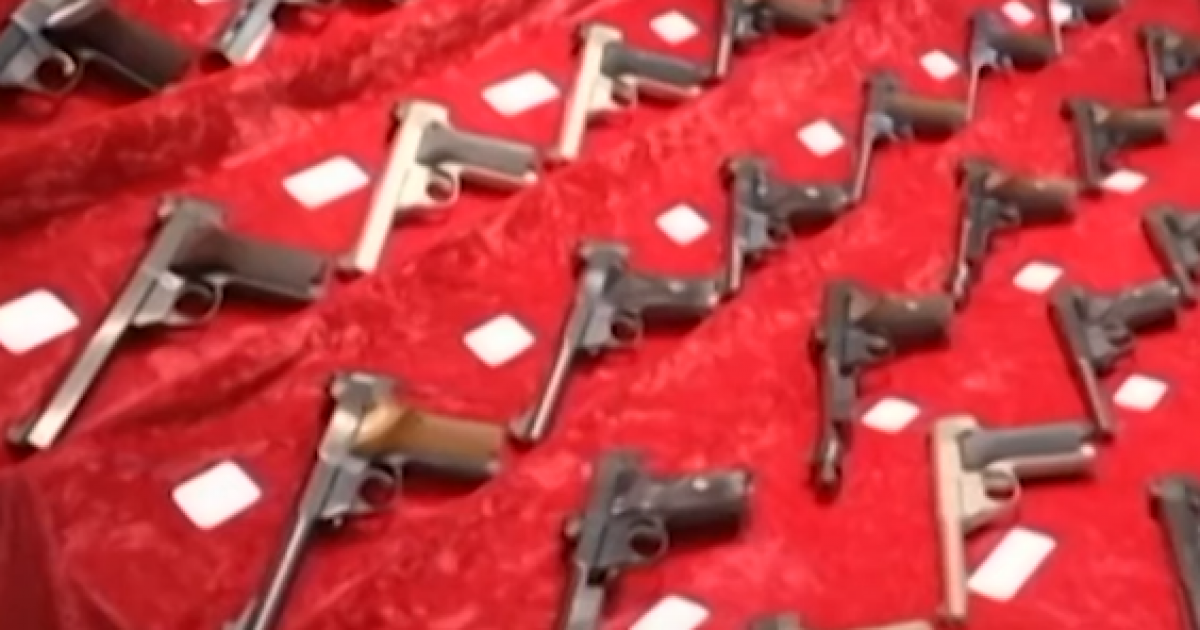
Gun owners saw some pretty solid results during the 2020 general election.
Many “experts” were foaming at the mouth over the prospects of a Democrat clean sweep at the federal level. However, those hopes were dashed with Republicans making surprising gains in the House and still keeping majority control of the Senate for now.
Moreover, Republicans were able to maintain control of most state legislatures that were expected to flip over to the Democrats. More importantly, solid conservative voter initiatives were passed during this election cycle. Take for example, Montana’s firearms preemption initiative LR-130. This pro-Second Amendment initiative was passed with 51 percent of the vote, 296,820 to 285,942. On the other hand, President Trump won with an emphatic 57 percent of the vote.
Nevertheless, Montana voters pulled off a major upset against a big money campaign organized by anti-gun oligarchs such as Michael Bloomberg and his cronies. Dean Weingarten of Ammoland noted that these gun control organizations outspent Second Amendment advocates $1,409,439.11 to $50,493.06, or 28 to 1.
Even with the massive spending on the gun grabbers’ side, they could not prevent Montana voters from exercising their will and voting for a pro-Second Amendment initiative. By approving this ballot measure, Montana voters fixed “loopholes” in the law which permitted local jurisdictions to enact anti-Second Amendment ordinances.
Gary Marbut, the founder of the Montana Shooting Sports Association (MSSA) provided an overview of what LR-130 entailed:
Two current state laws limit cities’ and counties’ authority to regulate firearms, but they are not enough limitation. One law, 7-1-111(9), M.C.A., prohibits local governments from using “any power that applies to or affects the right to keep or bear arms.” BUT, it goes on to say, “‘except that a local government has the power to regulate the carrying of concealed weapons.” LR-130 will remove this “except” clause from the law.
The other law to be amended by LR-130 is 45-8-351, M.C.A. This law generally prohibits local gun control, BUT says that for ‘public safety purposes’ a local government may adopt and enforce gun control measures in several ways. LR-130 will dramatically shorten this list of allowed exceptions. The net effect is that local governments will still be allowed to regulate unpermitted concealed weapons (people carrying concealed illegally inside city limits) and open carry into buildings owned and occupied by governmental entities. That’s it. If LR-130 is successful, local governments will no longer have alleged loopholes to exploit as Missoula tried with its universal background check ordinance and various ‘gun free zones’ concerning ‘parks’ and ‘public assemblies.’
The MSSA is one of Montana’s most effective pro-Second Amendment organizations. While not having the vast resources that Bloomberg’s organizations enjoy, the group could still fight back through reliable grassroots activism.
“I knew way in advance there was no way we could match Bloomberg with money. The only tool we could bring was grassroots activism.” Gary Marbut declared.
Weingarten provided some background to how this whole battle started:
The drama started in September of 2016, when Missoula, the second-largest city in Montana, perhaps the most leftist, passed an ordinance requiring every firearm sale in the city to be approved of by the government with an FBI National Instant Criminal Background Check. The ordinance claimed the loophole allowing local governments to restrict gun ownership from felons and the mentally incompetent allowed this authority.
After Missoula approved this ordinance, Montana Attorney General Tim Fox declared it to be unconstitutional per Montana law. Then, Missoula filed an appeal to Montana’s 4th Judicial District Court.
Missoula appealed to the Montana 4th Judicial District Court, where Judge Robert Deschamps ruled in favor of Missoula’s anti-Second Amendment action in 2018. Subsequently, the decision was appealed to the Montana Supreme Court. As the appeal was stuck in the courts, the legislature began to take action.
The Montana Legislature ended up passing two bills to take out this “loophole” in 2019. One of the bills, HB 325, went all the way to Governor Steve Bullock’s desk to sign. HB 357 had similar legislative language but contained a contingency clause that would put the issue before the voters, in the form of LR-130, in the case that Governor Bullock vetoed HB 325. Bullock vetoed the bill on May 3. 2019.
LR-130 would proceed as a ballot initiative, in accordance to Montana Constitution guidelines, during the 2020 election cycle. The anti-gun crowd was obviously angry and quickly filed a lawsuit against this ballot measure. On August 27, 2019, the Montana Supreme Court ruled that the measure was constitutional.
Following the referendum’s approval, the Montana Supreme Court struck down the decision by Judge Robert Deschamps in the District Court in a separate decision. In effect, the Missoula ordinance became toothless on October 2019.
LR-130 was still on the ballot for the 2020 elections. The ballot initiative bolstered the Second Amendment by preventing local governments from creating a patchwork of anti-gun zones in the state.
Weingarten noted that LR-130 passed by a razor thin margin of 10,000 votes.
Montana is a solidly pro-gun state, and enjoys a 9th place ranking according to Guns & Ammo magazine’s most recent annual ranking of pro-gun states. So, there’s clearly solid policy present in Montana and a strong political base that is willing to rise up against gun grabs. This successful ballot initiative shows the power of grassroots activism and why political activists should never ignore local and state level activists. When the federal government is lagging, these areas are where grassroots conservatives can make change and build up solid political machines.



